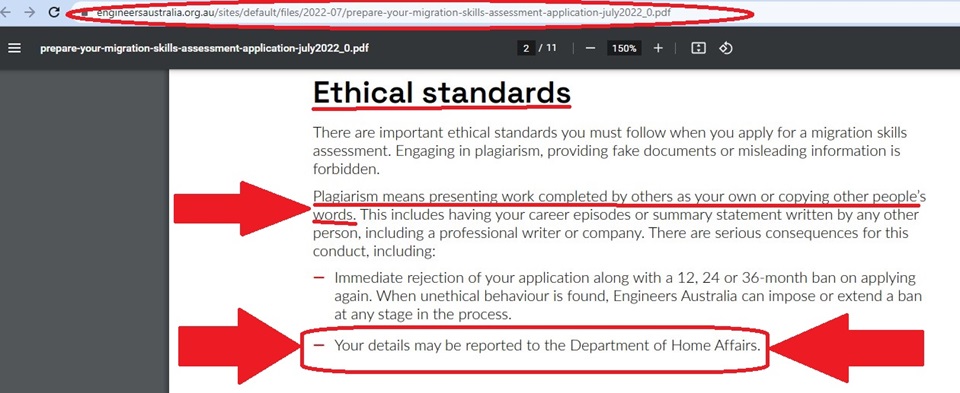Australia's ICT Sector: Boom or Bust? Addressing the Skills Shortage
Skills Priority List for ICT Professionals in Australia is included!
March 2024 -Australia's Information and Communication Technology (ICT) sector is experiencing a period of unprecedented growth. Businesses across all industries are increasingly reliant on technology to operate efficiently and compete in a global market. This digital transformation has fuelled a surge in demand for skilled ICT professionals, but a recent report by the Department of Jobs and Skills paints a concerning picture: a significant skills shortage threatens to hamper this growth.
The Demand for ICT Expertise
The report, titled "26% ICT Professionals," details the findings of a survey conducted among Australian employers. The results overwhelmingly highlight a strong demand for ICT professionals across a diverse range of specializations. From software development and network administration to cybersecurity and data analysis, employers are seeking individuals with the technical skills and knowledge to navigate the ever-evolving digital landscape.
This demand is reflected in job advertisement trends. A quick search on job boards reveals a plethora of ICT positions, with many companies struggling to fill these vacancies. The report underscores this challenge, indicating that a significant portion of employers have experienced difficulty recruiting suitable candidates for their ICT roles.
The Skills Gap: Why Can't We Find Qualified Workers?
While the demand for ICT professionals is undeniable, the report identifies a crucial mismatch between employer needs and the available workforce. Several factors contribute to this skills gap:
- Focus on Experience Over Qualifications: Many employers prioritize experience over formal qualifications. This can be a disadvantage for recent graduates who possess the theoretical knowledge but lack practical experience in real-world scenarios.
- Evolving Skillsets: The ICT sector is constantly evolving, with new technologies and methodologies emerging at a rapid pace. Educational institutions may struggle to keep their curriculum current, potentially leaving graduates with skillsets that don't perfectly align with employer requirements.
- Lack of Awareness: Not all students or career changers are fully aware of the diverse and lucrative career opportunities available within the ICT sector. This lack of awareness can lead to a talent pool that is smaller than it could be.
The Impact of the Skills Shortage
The consequences of a persistent skills gap in the ICT sector are far-reaching. Unfilled vacancies can lead to:
- Reduced Productivity: Businesses reliant on technology may experience operational bottlenecks and delays if they lack the skilled personnel to manage and maintain their critical IT infrastructure.
- Missed Opportunities: Companies with unfilled ICT positions may struggle to innovate and adapt to new technologies, hindering their ability to compete in the global marketplace.
- Security Risks: A lack of cybersecurity expertise can leave businesses vulnerable to cyberattacks, potentially resulting in data breaches and financial losses.
Bridging the Gap: Solutions for a Sustainable Future
Fortunately, there are steps that can be taken to address the ICT skills shortage and ensure a more sustainable future for the Australian economy. Here are some potential solutions:
- Collaboration Between Education and Industry: Educational institutions can work closely with industry leaders to develop curriculums that are aligned with current and future skill requirements. Internship programs can also provide valuable work experience for students.
- Upskilling and Reskilling Initiatives: Existing workers in related fields can be offered opportunities to develop new ICT skills through targeted training programs. This can help to expand the pool of qualified professionals and create career advancement opportunities.
- Promoting Diversity and Inclusion: The ICT sector has traditionally been under-represented by women and minorities. Encouraging greater diversity in the workforce can tap into a wider talent pool and bring fresh perspectives to the industry.
- Enhancing Awareness: Initiatives aimed at promoting ICT careers to students and job seekers can help to raise awareness of the exciting opportunities available in this dynamic field. Highlighting the strong job market and competitive salaries can attract new talent to the sector.
The Role of Government:
The Australian government can play a vital role in addressing the ICT skills shortage through various initiatives:
- Funding for Training Programs: Providing financial support for targeted training programs that equip individuals with the in-demand skills needed by employers can significantly increase the pool of qualified workers.
- Incentivizing Industry Collaboration: The government can offer incentives to encourage businesses to collaborate with educational institutions on curriculum development or to provide internship opportunities for students.
- Immigration Policies: Streamlining immigration processes for skilled ICT professionals from overseas can help to bridge the gap in the short term, while long-term solutions are developed.
Skills Priority List for ICT Professionals
|
Occupation |
ANZSCO |
National Labour Market Rating |
NSW |
VIC |
QLD & SA |
WA & TAS |
NT |
ACT |
National Future Demand |
|
ICT Business Analyst |
261111 |
NS |
NS |
NS |
NS |
NS |
NS |
S |
Moderate |
|
Systems Analyst |
261112 |
NS |
NS |
NS |
NS |
NS |
NS |
NS |
Moderate |
|
Multimedia Specialist |
261211 |
S |
S |
S |
S |
S |
S |
S |
Strong |
|
Web Developer |
261212 |
NS |
S |
NS |
NS |
NS |
NS |
NS |
Strong |
|
Analyst Programmer |
261311 |
NS |
NS |
NS |
NS |
NS |
NS |
NS |
Strong |
|
Developer Programmer |
261312 |
S |
S |
S |
S |
S |
S |
S |
Strong |
|
Software Engineer |
261313 |
S |
S |
S |
S |
S |
S |
S |
Strong |
|
Software Tester |
261314 |
NS |
NS |
NS |
NS |
NS |
NS |
NS |
Strong |
|
Database Administrator |
262111 |
NS |
S |
NS |
NS |
NS |
NS |
NS |
Strong |
|
ICT Security Specialist |
262112 |
S |
S |
S |
S |
S |
S |
S |
Strong |
|
Systems Administrator |
262113 |
NS |
S |
NS |
NS |
NS |
NS |
NS |
Strong |
|
Computer Network and Systems Engineer |
263111 |
NS |
NS |
NS |
NS |
NS |
S |
NS |
Strong |
|
Network Administrator |
263112 |
NS |
S |
NS |
NS |
NS |
NS |
NS |
Strong |
|
Network Analyst |
263113 |
NS |
NS |
NS |
NS |
NS |
NS |
NS |
Strong |
|
ICT Quality Assurance Engineer |
263211 |
NS |
NS |
NS |
NS |
NS |
NS |
NS |
Strong |
|
ICT Support Engineer |
263212 |
NS |
NS |
NS |
NS |
NS |
S |
NS |
Strong |
|
ICT Systems Test Engineer |
263213 |
NS |
NS |
NS |
NS |
NS |
NS |
NS |
Strong |
|
Telecommunications Engineer |
263311 |
NS |
NS |
NS |
NS |
NS |
NS |
NS |
Strong |
|
Telecommunications Network Engineer |
263312 |
NS |
S |
NS |
NS |
NS |
NS |
NS |
Strong |
|
Source: National Skills Commission Ratings: S – Shortage; NS – No Shortage |
|||||||||
Conclusion: A Call to Action
Australia's ICT sector is poised for continued growth, but the skills shortage threatens to stifle this progress. By fostering collaboration between education, industry, and government, we can develop a more sustainable talent pipeline and ensure that Australia has the skilled workforce it needs to thrive in the digital age.
Taking the Next Step
Professional: If you are IT qualified professional don't miss your chance to be part of Australia's exciting future. Begin your journey by submitting your Expression of Interest and take the first step towards a fulfilling career and life in this vibrant country. However, if you have any doubts regarding your eligibility to lodge a working visa process, we strongly recommend taking advantage of our FREE VISA ELIGIBILITY TEST.
Securing a visa can be a time-intensive process, with varying processing times depending on the visa category. Delays and complexities may arise during the application process. Therefore, maintaining patience and preparedness for potential delays is essential. Should you have any questions or concerns, feel free to reach out to MQuality for expert guidance and support.
For detailed information on the application process and our FREE VISA ELIGIBILITY TEST, visit our site mquality.com.au. We look forward to welcoming you to Australia!
Employer: If you are planning to hire professionals from overseas you may know that sponsoring skilled workers can be tricky. If you want to increase your chances of success, we can help you to go through the process and avoid errors.
If you are thinking of hiring us as your migration agent, you are in the right place because we are registered with the Office of the Migration Agents Registration Authority (OMARA). This registration shows we have enough expertise and are a suitable person to provide immigration help you need.
If you are serious to sponsor a skilled migrant for your business in Australia, please, ask us now for our quote.
We are driven, ethical and energetic professional, with a commitment to providing exceptional client care.
MQuality is an immigration and business advisory company specializing in visa processes for Australia. Founded in 2001, it is one of very few agencies that has been licensed and validated by the Australian government for over two decades. MQuality was established in Australia through the entrepreneurship of MaCson Queiroz JP, a businessman, electronic engineer from Mauá School of Engineering (SP), former instructor at the National Service for Industrial Apprenticeship (SENAI/SP), recognized by the Australian Competition and Consumer Commission, and registered in accordance with the legal terms of the Australian Securities and Investments Commission (ASIC), and a renowned immigration consultant in the country. Its portal has become one of the most sought-after reliable sources of information on immigration and entrepreneurship for Australia among Brazilians and Latin Americans.
Here is your Australia chance!
START NOW
(~6 minutes)

FAQ
Q1: What is the engineering occupations list for Global Talent Independent Program?

However, you may prefer to nominate one or more sectors that are most applicable to your engineering profession, specialization or with alternative titles to become eligible... Click here for the full list and more!...
Q2: Who can apply for Global Talent visa in Australia?
In order to become eligible for Global Talent visa in Australia, you will have to prove your outstanding achievements are internationally recognised, still be remarkable in your field of expertise, evidence that you would be a great value to Australia in your field of expertise, have no difficulty becoming established in your area of expertise in Australia and mainly you must produce a proof of a recognised organisation or individual in Australia, in the same field of yours, nominating you as global talent.
Q3: How long does it take to get a global talent visa?
As the Global Talent visa in Australia is not for points-tested General Skilled Migration visas, general processing times are between 2 – 3 months.
Q4: What can you do with global talent visa?
You will be allowed to live in Australia permanently at any city of your choice. Also, you will be able to enroll in Australia's public health care scheme, the best Medicare in the world. If your relatives are nice with you, you are allowed to sponsor them to come to Australia. After you have learned what “cricket” means in Australia and when eligible, you may apply for Australian citizenship.
Q5: Do you help me with CDR’s Engineers Australia approval?

Let us explain you how we can help you legally. We are the unique immigration, and business consultancy in Australia, truly able to help you, on your career episodes or summary statement, because we have the only expert in this industry, that is degree qualified, experienced Electrical Engineer and previously member of the Institute of Engineers Australia , Australian patent holder, Agtech startup’s co-founder, Linkedin’s influencer with more than 27,000 followers, Registered Migration Agent, with more than 21 years’ experience that have already helped more than 3,000 engineers to obtain a positive CDR Engineers Australia’ skills assessment.... Click here for more!...
There is no better place in the world to learn a 2nd or 3rd language, because Australia is the friendliest and the most harmonious multicultural community in the planet. Why are you still reading this article? Complete the form above now!

